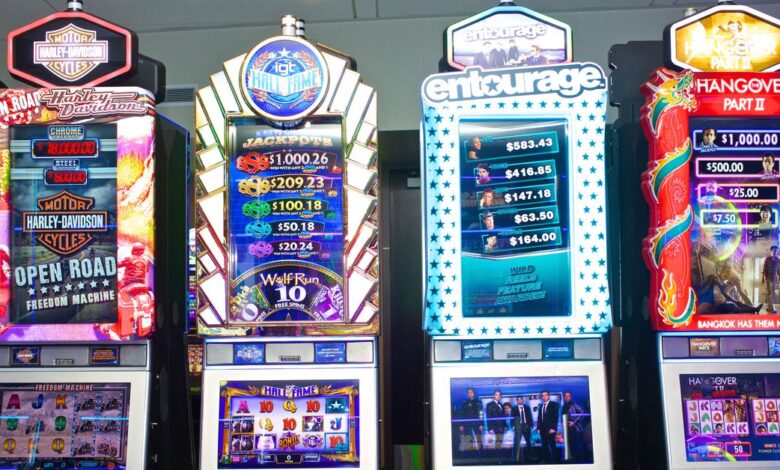The Psychology Behind Slot Games: How the Reels Keep Us Hooked

Slot games have long been a mainstay of casinos and online gaming platforms, captivating players with their flashing lights and the promise of big wins. But have you ever wondered why slot games are so addictive? In this article, we delve into the psychology behind Slot212 games and explore the mechanisms that keep us hooked on the spinning reels.
- The Thrill of Random Rewards: Slot games employ a psychological technique known as variable ratio reinforcement. This means that the timing and frequency of rewards are unpredictable, much like a random lottery. When players win, their brains release dopamine, a neurotransmitter associated with pleasure and reward. However, the uncertainty of when the next win will occur makes the gaming experience all the more exhilarating. This intermittent reinforcement is a powerful psychological tool that encourages players to continue spinning the reels, hoping for that next big win.
- Near-Miss Effect: Another psychological phenomenon that contributes to the allure of slot games is the near-miss effect. Slot machines are programmed to display symbols that are close to the winning combination, creating the illusion of an almost-win. Even though a near-miss is technically a loss, the brain perceives it as a near-victory, triggering a surge of excitement and a desire to keep playing. The near-miss effect is known to heighten motivation and maintain player engagement, even during periods of losing streaks.
- The Illusion of Control: Slot games often give players the illusion of control, even though the outcomes are entirely random. Features like “hold” and “nudge” options on some slot machines allow players to believe that their decisions can influence the results. In reality, these features have no effect on the game’s outcome, but they create a sense of empowerment and engagement, making players feel more involved in the gaming process.
- Cognitive Biases and Gambler’s Fallacy: Cognitive biases, such as the gambler’s fallacy, can also impact players’ behavior while playing slot games. The gambler’s fallacy is the belief that previous outcomes influence future results, leading players to think that a machine is “due” for a win after a series of losses. This faulty reasoning can prompt players to keep playing in the hope of overturning the perceived streak of bad luck, even though each spin’s outcome is independent of the previous ones.
- Social Reinforcement: The social aspect of slot gaming also plays a role in its appeal. In brick-and-mortar casinos, the sounds of other players winning and the celebratory atmosphere can enhance the excitement. Online slot games often feature leaderboards and social media integration, allowing players to share their achievements and engage with friends. Positive reinforcement from peers can strengthen the desire to continue playing and contribute to a sense of community around slot gaming.
- Escapism and Entertainment: Beyond the psychological tricks and cognitive biases, slot games provide a form of escapism and entertainment. They offer a brief respite from daily stresses and responsibilities, allowing players to immerse themselves in a world of fun and excitement. The engaging themes, captivating visuals, and thrilling sound effects enhance the overall gaming experience, making it a source of pleasure and enjoyment for players.
In conclusion, slot games employ various psychological techniques to keep players hooked and engaged. The thrill of random rewards, the near-miss effect, the illusion of control, cognitive biases, and social reinforcement all contribute to the addictive nature of slot gaming. However, responsible gaming practices and awareness of these psychological mechanisms can help players enjoy slot games as a form of entertainment without falling into excessive or compulsive gambling behavior.



